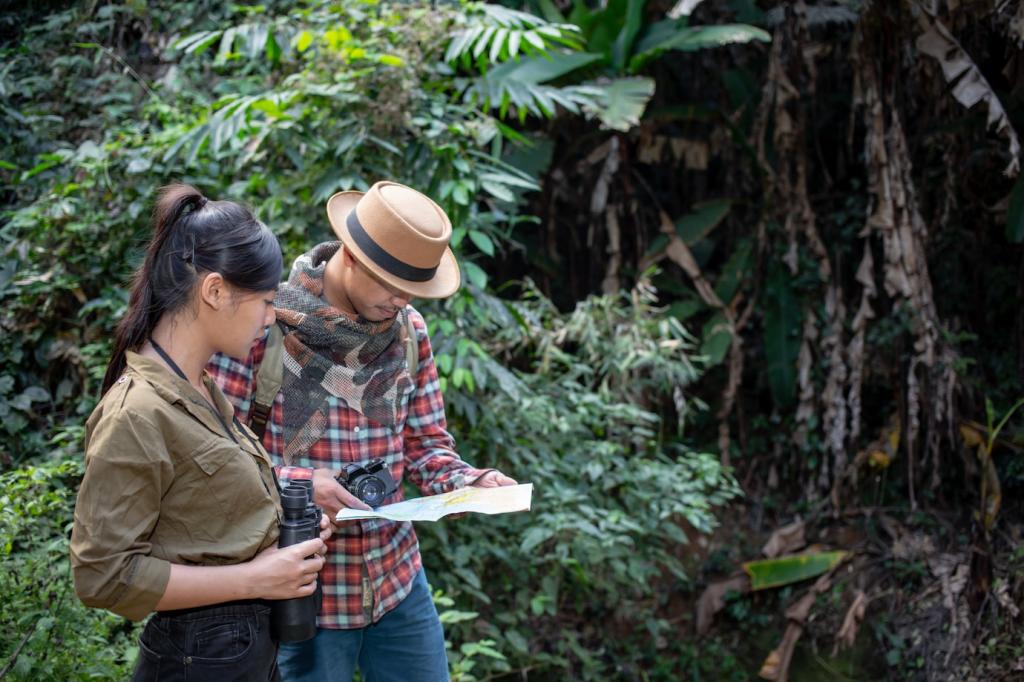Eco-Friendly Packing Tips for Travelers
Traveling offers an amazing opportunity to explore the world, but it also comes with the responsibility of minimizing environmental impact. Sustainable travel starts before you leave home, with mindful packing choices that help protect the planet. By adopting eco-friendly practices, you can reduce waste, limit your carbon footprint, and help preserve the natural beauty of your destinations for future generations.

Choosing Sustainable Luggage
Investing in luggage made from high-quality, durable materials ensures a longer lifespan, which directly reduces waste. Opt for brands that prioritize robust construction and offer warranties or repair services. This way, instead of discarding your suitcase at the first sign of wear and tear, you can repair and continue using it for years to come. Materials such as recycled plastics, organic cotton, and responsibly sourced leather not only stand the test of time but also help divert waste from landfills or minimize harmful chemical use during production.
Choosing luggage from companies that adhere to ethical manufacturing standards is another way to support sustainability. Look for brands with transparent supply chains, certifications like Fair Trade, or B Corp status, which collectively ensure workers are treated fairly and environmental impacts are minimized during production. When your luggage is produced responsibly, you contribute to a wider shift toward conscious consumption within the travel industry.
Selecting lightweight luggage contributes to a reduction in travel-related carbon emissions. Heavier bags require more fuel to transport, especially on planes, so packing light and choosing streamlined designs can collectively make a significant environmental difference. Lightweight suitcases and backpacks, especially those constructed of eco-friendly materials, help reduce your travel footprint while ensuring your journeys are more convenient and less strenuous.


Refillable Water Bottles and Coffee Cups
A reusable water bottle or coffee cup is one of the simplest yet most effective ways to cut down on plastic waste during your travels. Many airports, train stations, and even hotels now offer water refill stations, making it easier than ever to avoid single-use bottles. In addition to reducing pollution, having your own bottle ensures you’re always hydrated, and insulated designs can keep beverages at the right temperature for hours.

Eco-Friendly Toiletry Kits
Travel-sized products often come in non-recyclable packaging, which accumulates quickly. Instead, pack a toiletry kit filled with solid shampoo bars, reusable silicone containers for creams, and bamboo toothbrushes. These alternatives are not only better for the planet but also convenient, as they reduce spills and are compliant with airport regulations for liquids. Thoughtfully curating your toiletry case demonstrates a commitment to minimizing your environmental impact everywhere you go.
Mindful Clothing Choices
Selecting Versatile, Multi-Use Pieces
Opting for clothing that can serve multiple purposes reduces the total number of items you need to pack. For instance, a shirt that works both casually and as evening wear, or a scarf that doubles as a beach wrap, means less laundry and a lighter bag. This minimalist approach decreases the carbon emissions associated with transporting heavy luggage and encourages thoughtful purchasing habits.
Prioritizing Natural and Organic Fabrics
Clothing made from organic cotton, hemp, or bamboo uses fewer chemicals during manufacturing compared to synthetic fibers, resulting in less environmental contamination. These materials are typically biodegradable and often feel more comfortable on your skin, making them perfect for travel. Choosing such fabrics signals support for brands that prioritize agricultural sustainability and lower resource consumption.
Supporting Fair Trade and Local Designers
Purchase travel clothing from Fair Trade certified or locally-based designers to ensure that ethical labor standards and environmentally-friendly practices are observed. This not only makes your wardrobe more meaningful but also helps support local economies and artisans in the regions you visit. Every clothing choice becomes a way to invest in communities and promote responsible fashion on a global scale.
